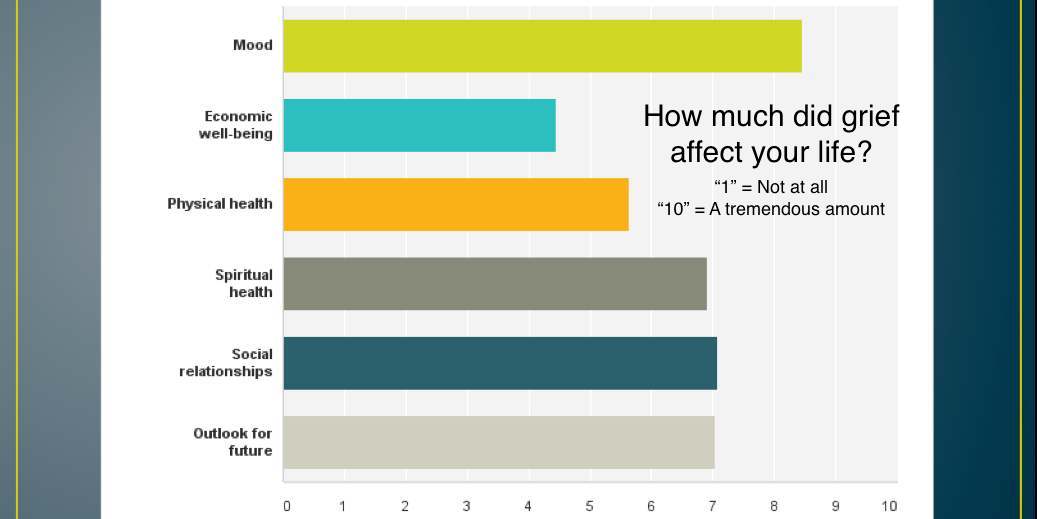• Suicide bereavement is profound and sustained for the majority of men, with 30% reporting that grief remained a constant difficulty in their lives one to three years after their loss and another 30% saying that it was a constant difficulty for longer than three years.
• Men generally believe friends, family, and peers (others who have experienced a loss to suicide) are the most helpful.
• Peer assistance and one-on-one help are especially valued by men, who also say they rely on information from the Internet for assistance.
• Most men believe men and women grieve differently, and plenty of men fit the stereotypes commonly associated with men's handling of emotional matters.
• Many men, on the other hand, believe that stereotypes get in the way of healthy grieving and that societal influences hamper men's grieving.
• Many also see bereavement as very individualistic, reporting that they are as emotionally expressive about their grief as women are.
• Men are interested in being peer helpers for other bereaved men, especially if they are far enough along in their own grief and are trained and supported.
This last finding -- that many men are willing to help each other with grief after suicide -- is of utmost importance, for men themselves likely hold the keys to their own recovery.
Unified Community Solutions (my private consultancy) and the Carson J Spencer Foundation (Sally Spencer-Thomas's nonprofit organization) distributed the survey to help us explore developing more-effective programs and resources for suicide bereaved men. We are hopeful that by this summer, we'll have an idea about how we might begin making new inroads into supporting men bereaved by suicide.
Please see the copy of the slides from the presentation on the survey that Sally and I (and Rick Mogil, who directs suicide grief programs for the Didi Hirsch Community Mental Health Center) delivered at the American Association of Suicidology conference in Los Angeles last Saturday.
 RSS Feed
RSS Feed